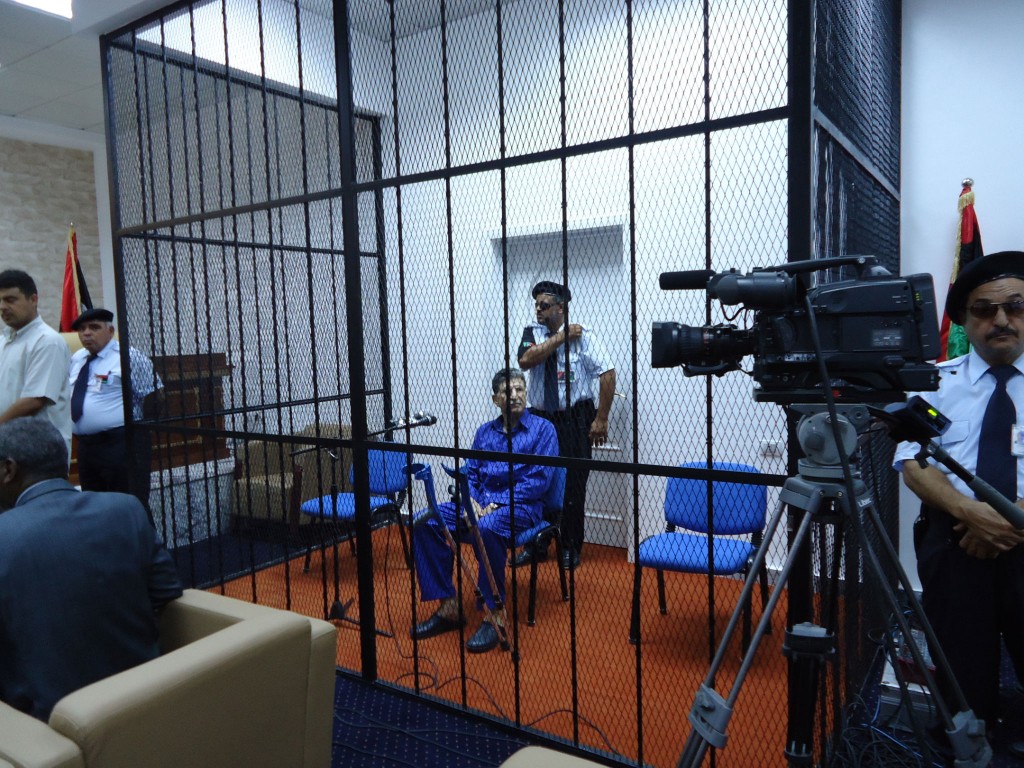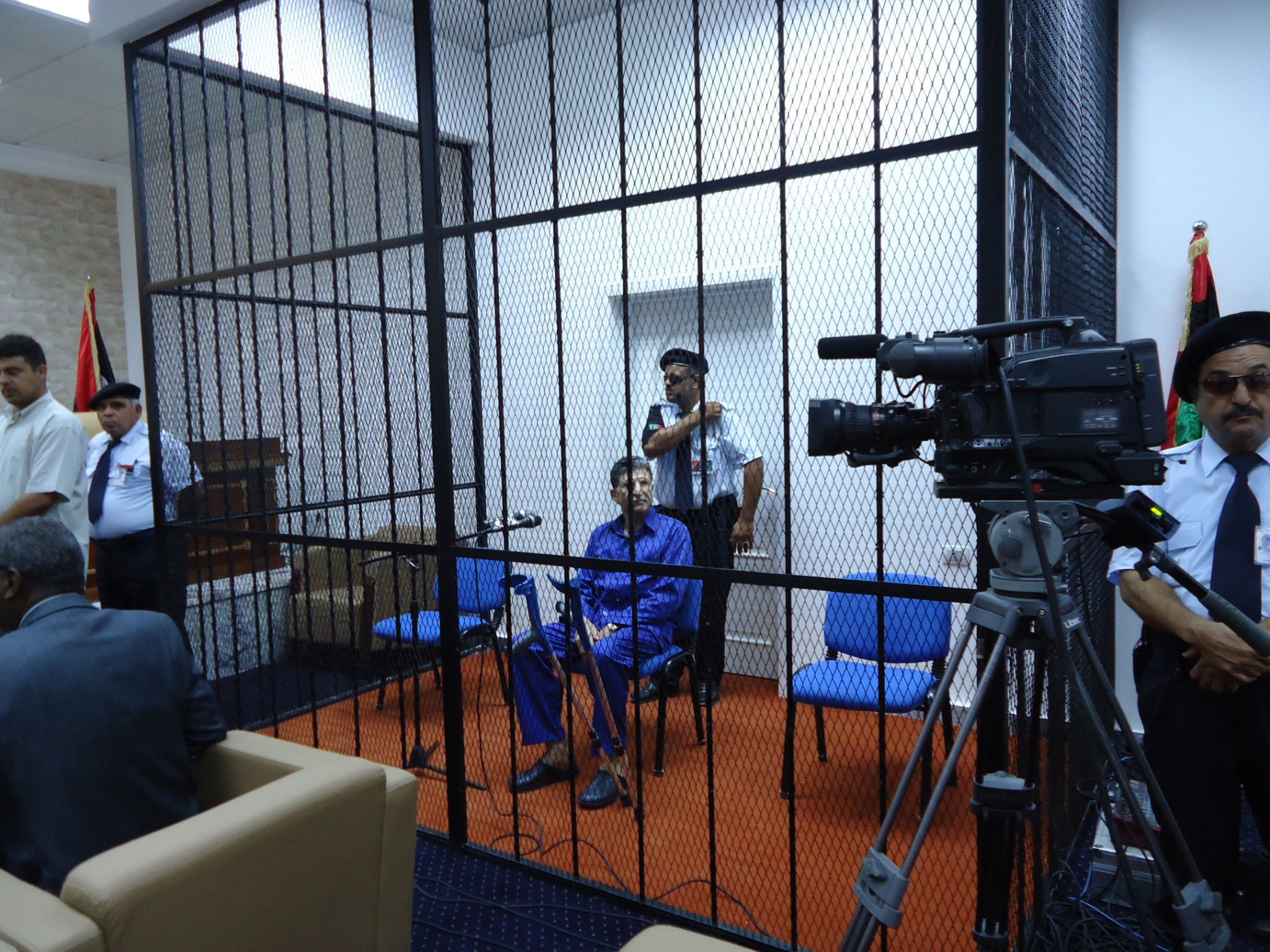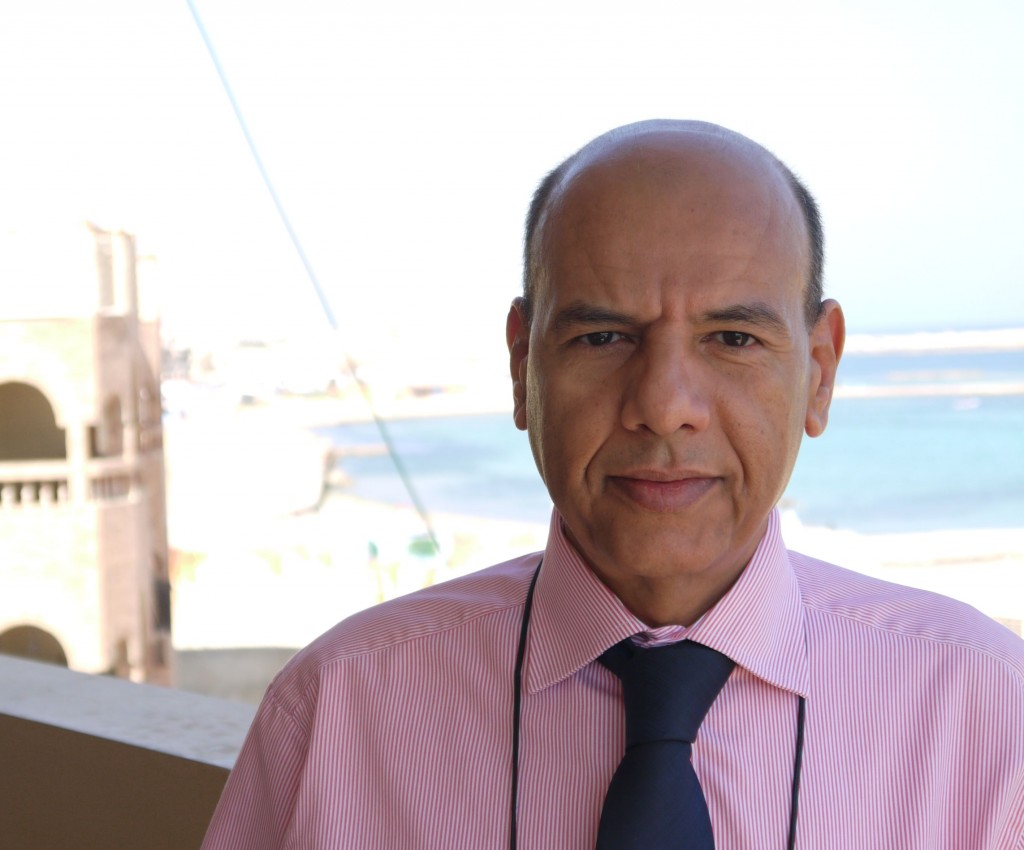By Ashraf Abdul Wahab.
Tripoli, 11 July:

The trial of Qaddafi’s former spy-chief was started – and postponed – for the third successive . . .[restrict]time yesterday, with the hearing now set to resume on 28th August.
The case was further complicated when the lawyer for the defence failed to appear in court owing to the fact that he was standing as a candidate for the elections.
With replacements having been appointed, the defence team promptly requested the adjournment to allow them sufficient time to review the case against their client, Abu Zaid Dorda, which runs to more than 3,000 pages.
Dorda, who served as the old regime’s last head of intelligence, is standing trial on charges of incitement to murder, providing arms for the purpose of killing civilians, conspiring to provoke civil war, denying people their right to protest, unlawful detention and abuse of authority.
The public prosecution team argued that the request for a further postponement should be dismissed, saying that the defence had by now had more than enough time to prepare for the case, which originally started on 5 June.
The prosecution also took the opportunity to submit additional evidence before the court, including statements from a witness who worked as the director of Dorda’s office during last year’s revolution.
The evidence included allegations that Dorda armed members of his tribe to fight against Zintan, as well as information from the case against fellow regime member Baghdadi Al-Mahmoudi, in which Dorda was reported to have worked with Abdullah Al-Senussi during the Tunisian revolution to prevent a similar uprising from taking place in Libya.
Audio recordings of phone calls between Dorda and Qaddafi’s former foreign minister, Musa Kusa, were also provided, which the defence argued provided further evidence of Dorda’s involvement in the suppression of the revolution and giving orders against revolutionaries.
In addition to denying the charges against him, Dorda also claimed he had been denied the right to meet privately with a lawyer and had undergone improper interrogations during his 10 months in detention.
“I am sometimes interrogated for more than seven hours at a time”, he said, “by people not from the prosecutor’s office, and I am moved from jail to jail during the process”.
Two other attorneys also submitted files against Dorda to be added to the case, both of which pertained to further claims by individuals which, the defence argued, substantiated the charges against him.
The judge accepted the files and announced the postponement of the trial.
[/restrict]







